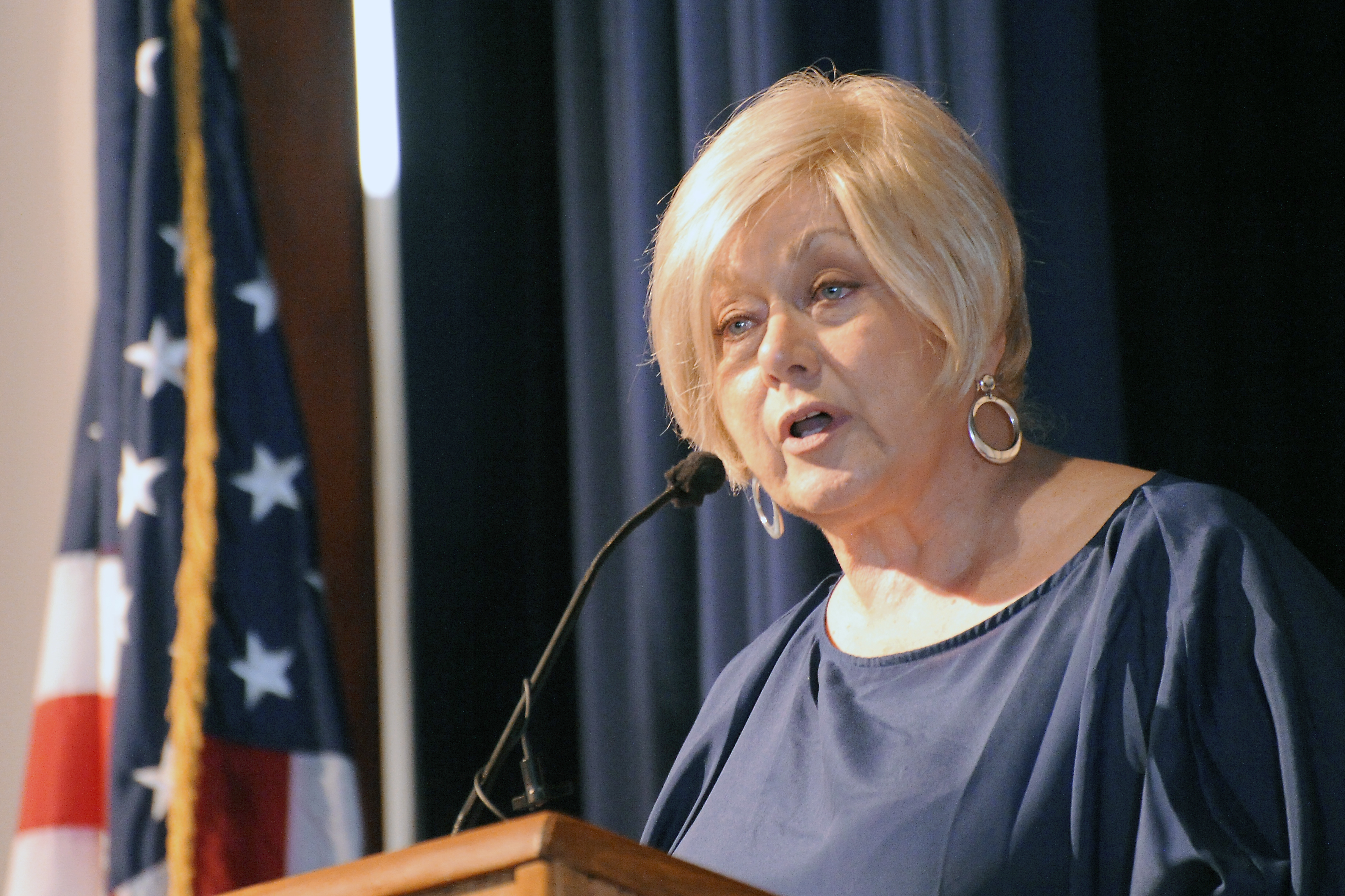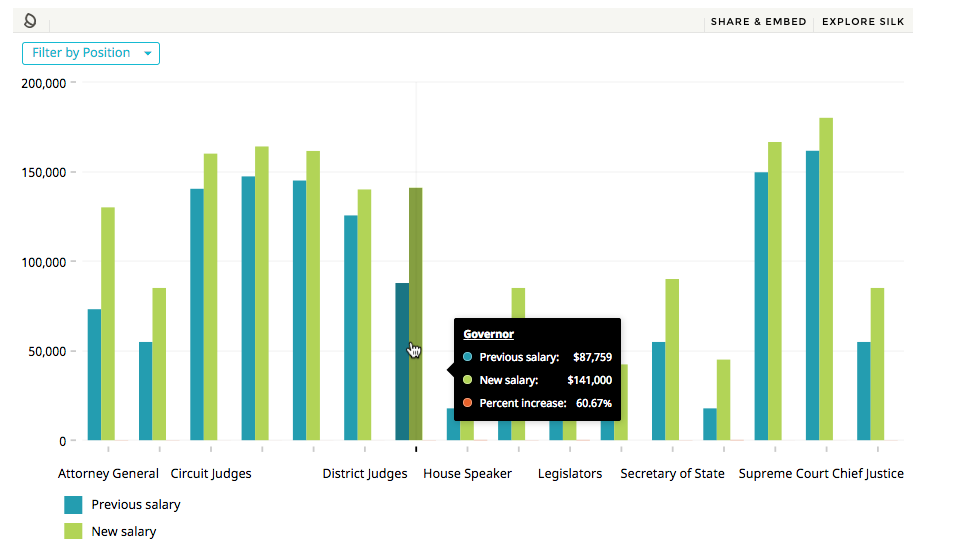Walker County is among nine Georgia counties, out of 159 counties statewide, that still use the sole commissioner system with one elected official calling all the shots.
That would be Bebe Heiskell, who has served for 11 years as the head of the county's executive and legislative branches. She's the only woman elected to serve as sole commissioner in Georgia history.
Heiskell is expected to announce soon whether she'll seek a fourth term. A challenger, longtime LaFayette pediatrician Paul Shaw, has already has thrown his hat in the ring.
One philosophical issue divides them: While Heiskell lauds the sole commissioner system, Shaw has made abolishing the form of government one of his main goals. He favors a five-person commission with a nonvoting chairman.
"There's more brains amongst five persons than there is among one," Shaw said. "It's much, much more difficult - if not impossible - to corrupt five people."
Shaw said Walker County, which has a population of about 70,000 and an annual budget of about $20 million, is too big for one person to run. He thinks commissioners, plural, would provide more openness and less chance for such pitfalls as cronyism and nepotism.
PRAISE FOR SYSTEM
Heiskell and two top county officials have nothing but praise for the sole commissioner system, saying it's more efficient, less expensive and even more accountable than a multimember county commission.
"I haven't abused it," Heiskell said. "I've seen plenty of abuse [in other government systems].
"I do every single thing that every other commission does. I hold public meetings, I take sealed bids ... my audit goes to the state of Georgia," she said. "We follow exactly what the state requires."
For County Coordinator David Ashburn, the sole commissioner system is a dream.
"I don't like it. I love it," he said. "You can get things done and get things done quickly. We don't have red tape here."
Ashburn runs the county for Heiskell, making the analogy that she's the chief executive officer and he's the chief operating officer.
Walker County has one of the lowest per-capita property tax rates in the state, he said, and an enviable level of bang for the buck for its services because there's no bureaucratic overhead.
It's not a dictatorship, Ashburn said, because residents can vote the commissioner out.
"The buck stops there," he said. "If you don't like what she's doing, you can get rid of her."
Heiskell said she averages 15 hours a day on the job and gets first-hand knowledge of her communities and constituents.
"When you're a sole commissioner, you're on the ground," said Heiskell, who said she's "obsessed" with her job.
"That's all I do. That's absolutely all I do," she said. "When you're getting the blame as well as the praise, you do your best.
"There's no buck-passing, I'll tell you. When you're elected, once you're there, you represent everybody," Heiskell said.
BLACKS AND SOLE COMMISSIONERS
There also has been debate - and lawsuits - in Georgia on whether the sole commissioner system discriminates against blacks.
While Heiskell is the only woman ever to hold the sole commissioner seat, no black person has ever held the job in Georgia.
Black voters' opposition to the sole commissioner system is detailed in "A Voting Rights Odyssey: Black Enfranchisement in Georgia," a book by Laughlin McDonald, director of the Atlanta-based Voting Rights Project of the American Civil Liberties Union.
The lack of black sole commissioners caused some Georgia counties to abandon the system.
Black residents sued Carroll County in 1984 over the county's adoption in 1951 of a sole commissioner system to replace a three-person commission. One of the sponsors of the bill to make the switch from commission to sole commissioner in 1951 was state Rep. Willis Smith. In 1947, he had tried to bring a sole commissioner system to the county, saying at the time: "This is white man's country, and we must keep it that way."
The Georgia Court of Appeals concluded Smith's statement was evidence of an attempt to discriminate against black voters. As a result of the suit, Carroll expanded the size of its commission to six commissioners elected from districts and an at-large commission chairman, McDonald writes.
Three other counties - Telfair, Webster and Wheeler - were sued in the wake of the Carroll County decision and abolished the sole commissioner system.
But the U.S. Supreme Court sided in 1993 with the sole commissioner form of government when it was challenged in Bleckley County.
The Rev. Wilson C. Roberson, one of the plaintiffs, said a black candidate "hasn't got a chance," McDonald wrote. But in a 5-4 vote, the Supreme Court ruled that the size of an elected body couldn't be challenged under the U.S. Constitution.
WALKER COUNTY MINORITIES
Race hasn't been a factor in Walker County's sole commissioner system because the county is 94 percent white and only 4 percent black with other minorities accounting for remaining 2 percent.
Walker County has had a sole commissioner since 1941, when voters voted it in because the multimember commission had ruined the county's finances, Heiskell said.
Walker County Attorney Don Oliver said, "Every once in a while, you'll hear somebody say, 'Oh, we just need to switch.'"
But there's been "no serious push in the 12 years I've been here" to change, he said.
"When you've got a good commissioner like Bebe, it is by far and away the most efficient way to run a government," Oliver said.
Switching from a sole commissioner to a multicommissioner system would require the state Legislature to put the proposal before Walker County voters, who would have to approve the change.


